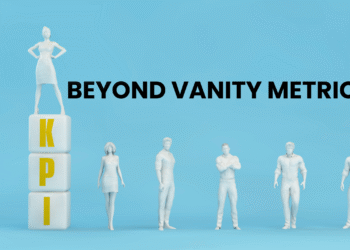Africa stands at the precipice of a technological revolution that promises to reshape how businesses connect with consumers across the continent. In a recent groundbreaking webinar, Maurice Igugu unveiled the strategic framework that successful African companies use to harness artificial intelligence for marketing dominance.
The Opportunity Is Real
The numbers tell an incredible story. Africa’s AI market is growing at 28.34% annually, heading toward $16.53 billion by 2030. Generative AI is moving even faster at 46.36% growth. We’re looking at a $1.5 trillion economic opportunity by 2030, and it’s not some distant dream. Right now, AI startups are capturing 25% of all venture funding in Africa, with over 2,400 AI companies already operating across the continent.
Why Now? Three Game-Changing Forces
Maurice identified three forces creating an unprecedented window of opportunity. First, Africa’s AI market is exploding with 17.68% compound growth, and 41% of AI companies here are startups, meaning we’re creating homegrown solutions that understand our contexts.
Second, there’s what he calls the “infrastructure paradox.” Yes, we face challenges, but Africa doesn’t just adapt; we innovate around limitations. We skipped landlines for mobile, pioneered mobile money, and now over 40% of African institutions are implementing AI solutions despite infrastructure hurdles.
Third, unlike other regions optimising existing systems, Africa is using AI to create entirely new markets. We’re serving the unbanked and solving fundamental challenges with culturally sensitive approaches guided by values like Ubuntu.
Four Strategies That Work
Through analysing Africa’s most successful AI adopters, Maurice discovered four battle-tested strategies generating real revenue.
The Hyper-Personalisation Engine moves beyond generic marketing to deliver locally relevant experiences. In a continent with over 2,000 languages, this isn’t luxury; it’s a necessity. Companies using AI-powered recommendations see up to 35% retail revenue increases.
The Automated Content Factory creates culturally relevant content at scale. The winning formula: AI generates 80%, humans provide the critical 20% of cultural nuance that drives real engagement.
The Intelligent Sales Accelerator automates routine sales processes while freeing humans for relationship building. By 2028, over 50% of B2B sales will run through conversational AI.
The Proactive Retention Loop shifts from reactive service to predictive retention. With acquisition costs 5-25 times higher than retention, AI-powered churn prediction is a game-changer.
Hard-Won Lessons from the Front Lines
The most valuable insights come from companies that have implemented these strategies. Takealot learned that AI recommendations must be economically sensitive; suggesting unaffordable products breaks trust. Safaricom’s cost-cutting approach backfired, while Coca-Cola’s co-creation strategy generated massive engagement and 5-6% revenue increases.
Fintech leaders like Capitec show how AI builds trust through inclusion, combining customer-facing chatbots with robust fraud detection. Companies like Jumo use AI to serve entirely new markets, the unbanked populations that traditional services ignore.
Turning Challenges Into Advantages
Every obstacle has proven solutions. Infrastructure gaps drive mobile-first, low-bandwidth innovations while pushing investment in first-party data. Skills shortages lead to upskilling existing teams, positioning AI as human augmentation rather than replacement. Regulatory complexity becomes a competitive advantage for companies embedding compliance from day one.
The Implementation Blueprint
Success requires disciplined progression. Start by crawling, and choose one high-impact use case like customer service chatbots. Then walk, connect different AI applications so that systems enhance each other. Finally, run, drive transformation with integrated AI ecosystems. The foundation? Building an AI-ready culture where teams see technology as intelligence amplification.
What’s Coming Next
Africa’s AI marketing future will be generative in capability, local in context, and ethical in implementation. Winners won’t import generic models; they’ll build, train, and fine-tune AI on African data, for African contexts, respecting our unique values and diversity.
Your Next Move
This overview only scratches the surface of Maurice’s comprehensive framework that’s driving millions in revenue for African companies. The full webinar includes detailed implementation guides, real-world case studies, and interactive Q&A addressing common challenges. Watch it here.
The opportunity is real, the playbook exists, and companies across Africa are already transforming their marketing with AI. The question isn’t whether this revolution will happen, it’s whether you’ll lead it or scramble to catch up.




